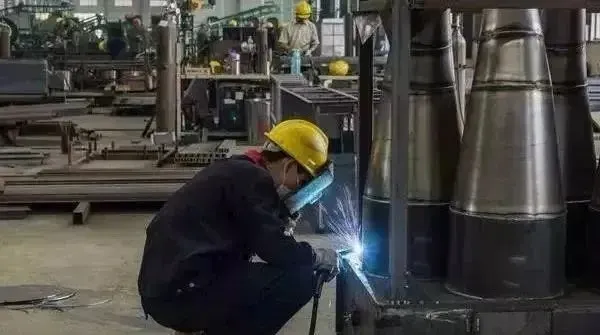Alcohol barrel exploded after being welded to repair leakage
Welding is a complex and dangerous process, and its application in repairing leaking alcohol barrels requires stringent safety measures to prevent catastrophic accidents, such as the tragic incident that occurred in a pharmaceutical factory workshop. According to reports, an accident took place when a leaking alcohol barrel was sent for welding repair by the machine repair team. Unfortunately, soon after the welder began his work, the barrel exploded with devastating consequences. The force of the explosion propelled the barrel cover with such velocity that it cracked the welder’s head, leading to his death on the spot. Upon investigation, it was discovered that the primary cause of this fatal incident was the failure to properly clean the alcohol barrel before welding. Residual alcohol in the barrel, an extremely volatile substance, combined with air in the closed container to form an explosive mixture. Alcohol's volatility is well-documented, and when it interacts with welding, especially gas welding, it creates conditions ripe for ignition and subsequent explosion. This tragic event underscores the critical importance of implementing rigorous safety protocols and thorough preparation before engaging in welding operations involving flammable substances.

To prevent such accidents, several precautionary steps must be meticulously followed. First and foremost, containers used to store alcohol or other flammable substances must be thoroughly cleaned with clean water before any welding activities commence. This step is crucial as water helps to remove residual alcohol that could otherwise mix with welding sparks and cause an explosion. Additionally, it is of paramount importance to ensure that the barrel cover is left open during the welding process. This allows for adequate ventilation, preventing the accumulation of explosive gases. Secondly, welders must be adequately informed and trained to identify the nature of the substances previously contained within the barrels or containers they are tasked to repair. Understanding whether the container held flammable or explosive materials is critical to taking appropriate cleaning and safety measures. Any uncertainty should prompt the welder to err on the side of caution and adhere to the highest standards of safety.
Moreover, blind fire welding, a practice where welding is conducted without knowing the contents or prior usage of the container, should be strictly prohibited. Welders must carry out comprehensive inspections and ensure the integrity of their preparation procedures before starting the welding operation. Employers and supervisors bear the responsibility of fostering a culture of safety and vigilance, ensuring that all workers understand the hazards and the steps necessary to mitigate them. Training programs highlighting the risks associated with welding on containers that once stored volatile substances should be mandatory in any environment where such activities are performed. Additionally, safety audits and regular checks can help in identifying potential risks and reinforcing the importance of adherence to safety protocols. Ultimately, the tragic accident at the pharmaceutical factory serves as a stark reminder of the deadly consequences of negligence in industrial operations and the critical need for thorough preparation and unwavering adherence to safety practices in welding and other high-risk activities.
-
Only welders are allowed to perform welding workȘtiriOct.31,2025
-
Health hazards of plasma weldingȘtiriOct.23,2025
-
Pay attention to safety when weldingȘtiriOct.20,2025
-
Burned while exploring the welding environmentȘtiriSep.30,2025
-
Scalded by molten steel when exploring the depth of the slag poolȘtiriSep.23,2025
-
Fire during welding workȘtiriSep.16,2025


